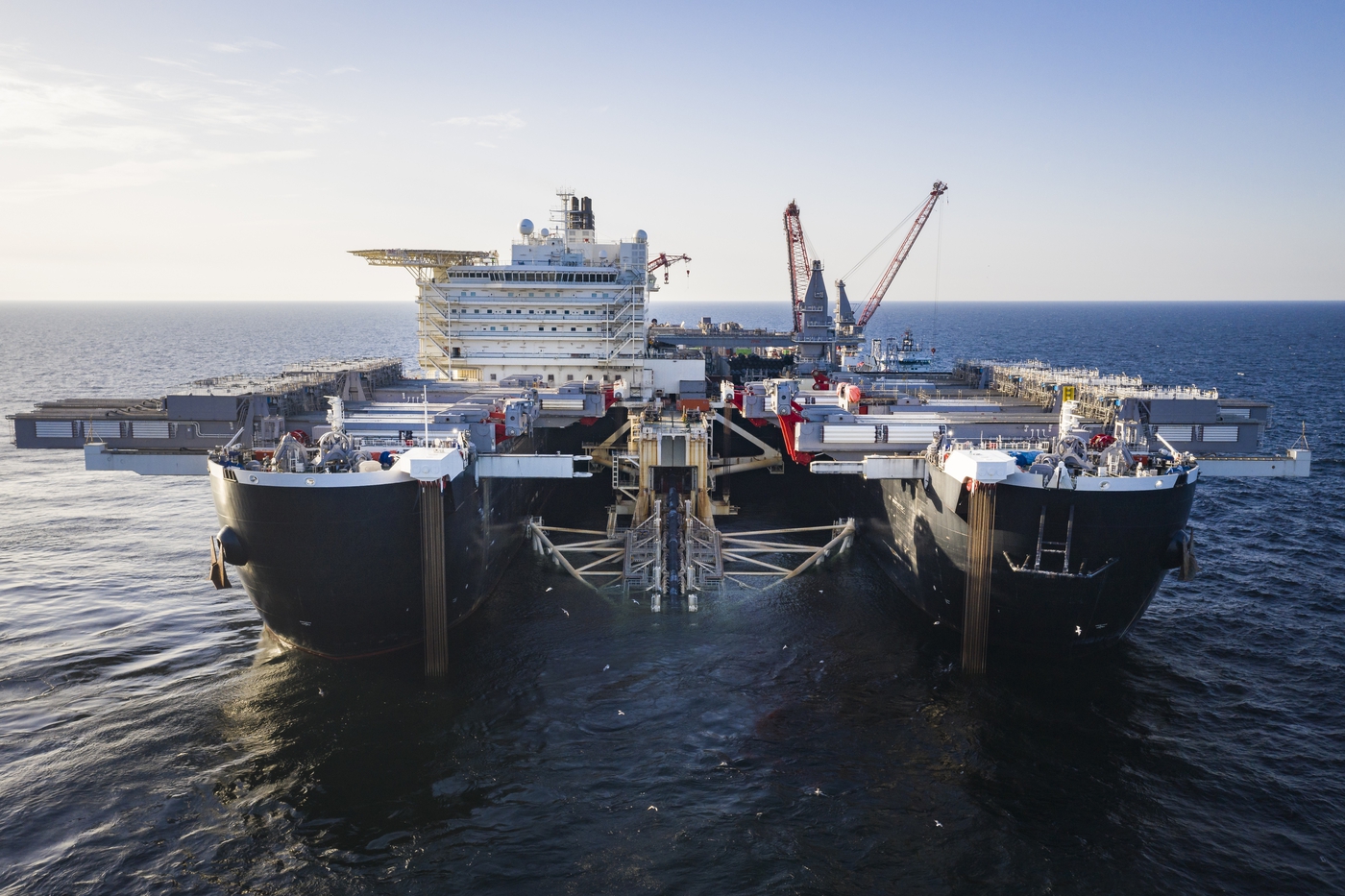Nord Stream 2 Says Denmark Re-route Could Cause Eight-Month Delay, Cost $740 million
COPENHAGEN/MOSCOW (Reuters) – Nord Stream 2, the Russian-led gas pipeline project across the Baltic Sea to Europe, could be delayed by up to eight months and cost an extra 660 million euros ($740 million) due to hurdles in securing the necessary permits from Denmark, the pipeline operator has said.
The 1,230-km (765-mile) Nord Stream 2 pipeline, now under construction, has come under fire from the United States and several eastern European, Nordic and Baltic countries, which say the conduit will increase Europe’s reliance on Russian gas.
The timeline of the project, led by state-owned Gazprom, is key for the future of the gas transit contract between Moscow and Kiev, as Ukraine is Russia’s main gas route for exports to Europe.
The transit contract, a large source of budget revenue for Ukraine, expires at the end of this year. Nord Stream 2, according to its initial schedule, should have been ready by then.
Gazprom has completed more than 70% of Nord Stream 2 but since April 2017 has had pending applications with Danish authorities to lay between 147 and 175 km (91-109 miles) via Danish waters.
Nord Stream 2, aimed at doubling the annual capacity of the existing Nord Stream pipeline by adding 55 billion cubic meters (1.92 trillion cubic feet), is to run via the waters of Finland, Sweden, Denmark and Germany. It has approvals from all countries whose waters it crosses apart from Denmark.
The Russian-led company submitted two route applications with the Danish authorities, of which the first was proposed more than two years ago. In March, the Danish Energy Agency requested an environmental assessment of a third route option.
Nord Stream 2 labeled the third route request “a deliberate attempt to delay the project’s completion”.
Nord Stream 2, in a complaint to the Danish authorities in April, said costs related to the new request for a third route had already totaled more than 100 million euros ($112 million).
According to the letter, obtained by Reuters, the request for a third route could result in a delay of up to eight months and further costs of 560 million euros ($628 million). The initial budget was 9.5 billion euros ($10.7 billion).
“Delaying the project will result in a significant financial loss for Nord Stream 2,” the letter said, asking the Danish Energy Board of Appeal to nix the energy agency’s request.
Nord Stream 2 said in the letter that it had “repeatedly asked for a status update ... without receiving any response”.
Aside from Gazprom, half of the funding for Nord Stream 2 is being provided by Germany’s Uniper and BASF’s Wintershall unit, Anglo-Dutch company Shell, Austria’s OMV and France’s Engie.
Reuters obtained the document from the Danish Energy Board of Appeal under laws on freedom of information.
The Danish Energy Agency confirmed that Nord Stream 2 had appealed its decision. The agency said it has made its reasons for requesting a third route application clear to the appeal board but declined to elaborate.
NO MORE VETO
Nord Stream 2 told Reuters it had informed the Danish Energy Agency about the potential impact of delays on costs and the project schedule, but declined to confirm the figures contained in the letter.
“A delay of several months will lead to additional costs of several hundred million euros but we cannot fully quantify because the final impacts depend on the timing of the permit decision of the responsible authorities,” it said.
In June, Nord Stream 2 withdrew its initial 2017 application for a route through Danish territorial waters south of the Baltic island of Bornholm.
Denmark could have vetoed the initial route. The country passed a law in 2017 that would allow it to ban the pipeline from passing through its territorial waters on security grounds.
However, no veto can be applied for the two remaining route options as they would steer the pipeline through Denmark’s exclusive economic zone, not its territorial waters.
According to Reuters calculations based on Nord Stream 2 data and the speed of construction, Gazprom’s pipe-layers will reach the Danish exclusive economic zone between three and five months from now.
Nord Stream 2 said in May the project may be launched in 2020 rather than the end of 2019 due to delays in obtaining permits from Denmark.
Russian Energy Minister Alexander Novak said last month that Moscow had offered Kiev a short-term gas transit deal to substitute the current 10-year contract after it ends this year.
Related News
Related News

- Keystone Oil Pipeline Resumes Operations After Temporary Shutdown
- Freeport LNG Plant Runs Near Zero Consumption for Fifth Day
- Biden Administration Buys Oil for Emergency Reserve Above Target Price
- Mexico Seizes Air Liquide's Hydrogen Plant at Pemex Refinery
- Enbridge to Invest $500 Million in Pipeline Assets, Including Expansion of 850-Mile Gray Oak Pipeline
- Enbridge Receives Approval to Begin Service on Louisiana Venice Gas Pipeline Project
- U.S. to Acquire 3 Million Barrels of Oil for Emergency Reserve in September
- AG&P LNG Acquires 49% Stake in Vietnam's Cai Mep LNG Terminal
- BP's Carbon Emissions Increase in 2023, Ending Decline Since 2019
- Texas Sues EPA Over Methane Emission Rules for Oil and Gas Sector





Comments